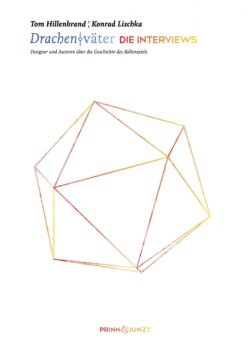Читать книгу Drachenväter: Die Interviews - Konrad Lischka - Страница 36
На сайте Литреса книга снята с продажи.
Apart from this, the management personnel involved in the books and the cards (...) how much, do you think, did other role playing companies like FASA or White Wolf impact TSR's business when stuff like „Shadowrun“, like „Vampire“ came out?
ОглавлениеSure. Those are all good for the role playing business, mostly because they were addressing audiences that weren't being well-served by TSR. I was doing core fantasy and a few things around the edges, but really it was the core of Sword and Sorcery (…) „Shadowrun“ said: ‚Let's do cyberpunk with magic kernels.’ It was very much an urban modern game. White Wolf and „Vampire“ were huge in this nineties period and brought a lot of women into role playing, as much as anything else. Any fan of Anne Rice would at least give „Vampire“ a look. They were bringing new players in, which I thought was wonderful.
Me and some of the other TSR stuff played a „Werewolf“ Campaign, the „Vampire“ game, „Changeling“. I didn't play „Shadowrun“ but I know that it was around. I don't know that it directly hurt TSR. I think a lot of people still said: ‚„Dungeon & Dragons” is the core. It's the game I learned first, it's easy.’ They still had a strong audience pool. It may be the argument that role playing was more than „Lord of the Rings“ based fantasy. It could do other genres. […] Wouldn't it be nice to change it up a little? It was good for the hobby and not necessarily bad for TSR.
